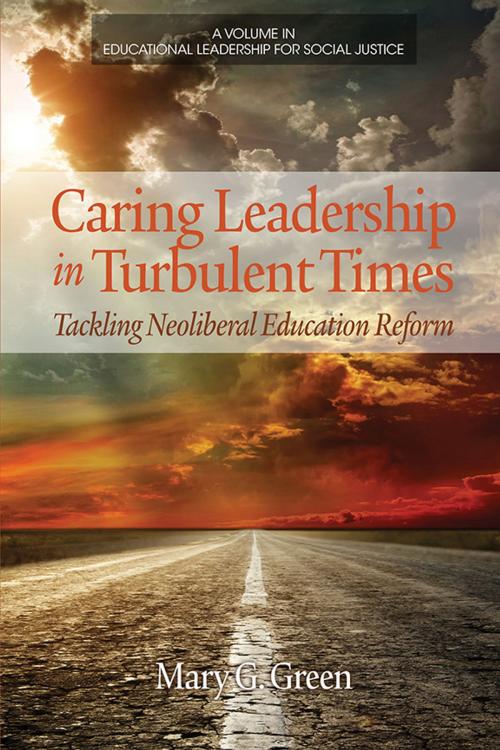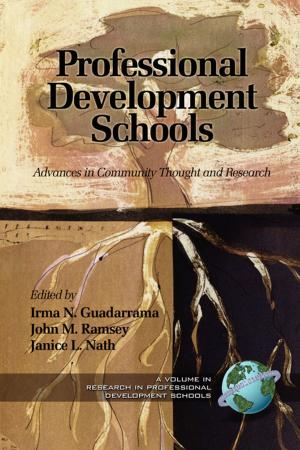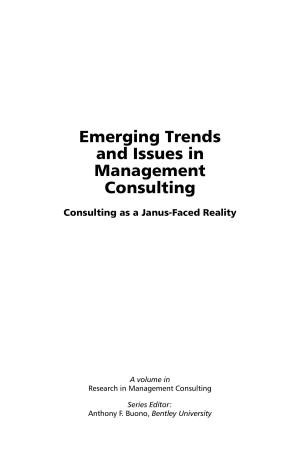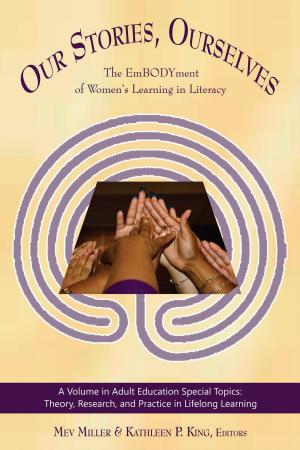Caring Leadership in Turbulent Times
Tackling Neoliberal Education Reform
Nonfiction, Reference & Language, Education & Teaching, Educational Theory, Leadership, Teaching, Teaching Methods| Author: | Mary G. Green | ISBN: | 9781623967314 |
| Publisher: | Information Age Publishing | Publication: | June 1, 2014 |
| Imprint: | Information Age Publishing | Language: | English |
| Author: | Mary G. Green |
| ISBN: | 9781623967314 |
| Publisher: | Information Age Publishing |
| Publication: | June 1, 2014 |
| Imprint: | Information Age Publishing |
| Language: | English |
This book analyzes education reform through the eyes of those entrenched in the process—policy makers, administrators, middle managers, principals, and teachers—in the context of care. A senior administrator, who participated in the implementation of an unprecedented series of reforms that flattened the education system in a Canadian province and rebuilt it with a new mandate, examines learning from the shortcomings of the past and provides a critical enquiry that can help determine the success or failure of future reform efforts by shedding light on the obstacles to avoid, problems to correct, and methods to embrace in order to overcome hurt and disappointment in a turbulent environment and foster more caring and effective educational organizations. Few attempts have been made to write a book about women’s work from the perspective of those in senior leadership roles in education; others have written about it but not experienced it firsthand. This book illuminates the controversial debate between women and gender in education and challenges assumptions about equity and the caring and democratic nature of education. It contributes to a broader understanding and knowledge of the complexities of leadership work within education, which in turn can lead to improvement in professional relationships as well as organizational effectiveness. The book contains enlightening and compelling stories about the unique and shared experiences of people navigating turbulence within an organization. Author Mary Green draws on her career spent teaching and learning to provide a unique Canadian perspective and context. She offers a rigorous self, social, historical, and political reflection of educators, who despite experiencing particular challenges, draw purpose from faith in the possibilities and potential of more caring practice in education. The content will prove useful to those committed to infusing more humanity into work in education with reference to individuals, institutions, and the social and political challenges in the field. Specifically, this book is relevant to graduate students in faculties of education, policy makers, principals, other administrators, and organizational leaders. Universal issues of power and politics reveal interconnections between the personal and the global workplace, underscoring the importance of care in the workplace.
This book analyzes education reform through the eyes of those entrenched in the process—policy makers, administrators, middle managers, principals, and teachers—in the context of care. A senior administrator, who participated in the implementation of an unprecedented series of reforms that flattened the education system in a Canadian province and rebuilt it with a new mandate, examines learning from the shortcomings of the past and provides a critical enquiry that can help determine the success or failure of future reform efforts by shedding light on the obstacles to avoid, problems to correct, and methods to embrace in order to overcome hurt and disappointment in a turbulent environment and foster more caring and effective educational organizations. Few attempts have been made to write a book about women’s work from the perspective of those in senior leadership roles in education; others have written about it but not experienced it firsthand. This book illuminates the controversial debate between women and gender in education and challenges assumptions about equity and the caring and democratic nature of education. It contributes to a broader understanding and knowledge of the complexities of leadership work within education, which in turn can lead to improvement in professional relationships as well as organizational effectiveness. The book contains enlightening and compelling stories about the unique and shared experiences of people navigating turbulence within an organization. Author Mary Green draws on her career spent teaching and learning to provide a unique Canadian perspective and context. She offers a rigorous self, social, historical, and political reflection of educators, who despite experiencing particular challenges, draw purpose from faith in the possibilities and potential of more caring practice in education. The content will prove useful to those committed to infusing more humanity into work in education with reference to individuals, institutions, and the social and political challenges in the field. Specifically, this book is relevant to graduate students in faculties of education, policy makers, principals, other administrators, and organizational leaders. Universal issues of power and politics reveal interconnections between the personal and the global workplace, underscoring the importance of care in the workplace.















